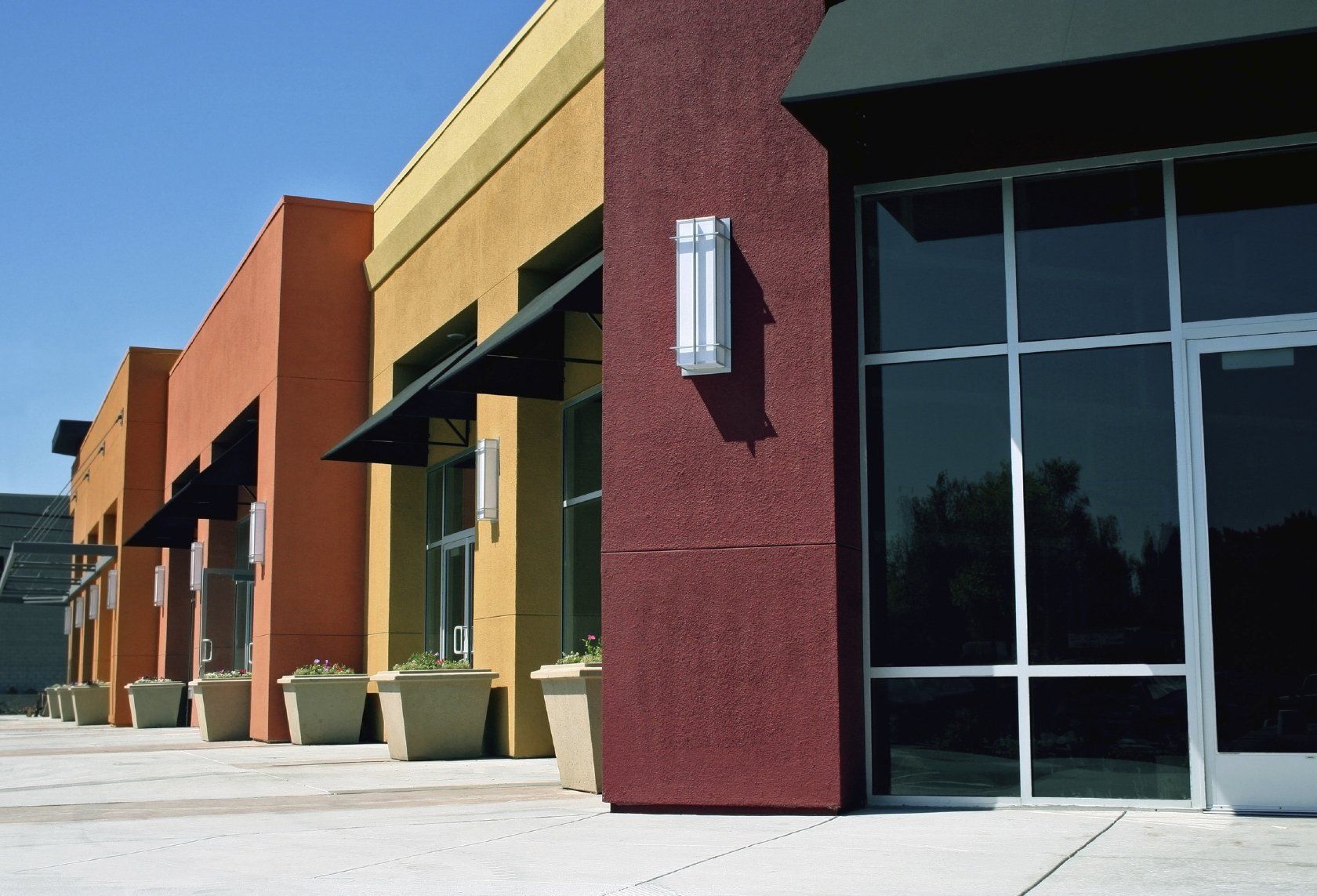Understanding the Factors Behind African Americans' Voter Turnout
July 8, 2023
How Race, Education, and Income Shape Voting Behavior
Voting is a fundamental right and a cornerstone of democracy. However, voter turnout among African Americans in the United States has historically been lower compared to other demographic groups. Numerous factors contribute to this phenomenon, reflecting a complex interplay of historical, social, and political dynamics. In this article, we delve into some of the reasons why African Americans tend to refrain from voting, shedding light on the barriers they face and the potential paths toward greater political engagement.
1. Historical Context and Voter Suppression
The legacy of systemic racism and historical disenfranchisement plays a significant role in shaping African Americans' attitudes towards voting. Throughout the nation's history, African Americans have faced numerous barriers, including literacy tests, poll taxes, and other discriminatory practices that deliberately restricted their access to the ballot box. These historical injustices have left a deep-rooted distrust and skepticism towards the voting process for many African Americans, leading to a sense of disenchantment and disengagement from political participation.
2. Socioeconomic Factors
Socioeconomic disparities can act as deterrents to political engagement. African Americans, on average, face higher poverty rates, limited access to quality education, and unequal economic opportunities. These factors can create obstacles to voter participation, as individuals may prioritize meeting basic needs over engaging in the political process. Additionally, the lack of financial resources may restrict their ability to engage in political campaigns or support candidates financially, which can impact the overall level of political influence within their communities.
3. Voter ID Laws and Restrictive Policies
The implementation of voter ID laws and other restrictive policies has disproportionately affected African American voters. These laws often require specific forms of identification that may be more challenging for African Americans to obtain due to financial constraints or limited access to relevant documentation. Such requirements can create barriers and contribute to voter suppression, leading some African Americans to feel discouraged or excluded from the political process.
4. Lack of Representation and Policy Concerns
African Americans may perceive a lack of representation and responsiveness from elected officials, which can dampen enthusiasm for voting. The underrepresentation of African Americans in political offices at various levels can lead to a perception that their concerns and interests are not adequately addressed. This sentiment, combined with systemic issues like racial inequality, criminal justice reform, and voting rights, can contribute to a sense of disillusionment and apathy towards participating in the electoral process.
5. Mobilization and Voter Outreach
Effective voter mobilization and outreach efforts are critical to increasing African American voter turnout. Engaging with communities, providing education about the importance of voting, and addressing concerns about voter suppression can help overcome barriers to participation. Grassroots organizations, community leaders, and political campaigns play a vital role in fostering a sense of empowerment and encouraging African Americans to exercise their right to vote.
Understanding the reasons behind African Americans' lower voter turnout requires recognizing the historical, social, and political context in which this phenomenon occurs. Addressing the historical legacy of voter suppression, socioeconomic disparities, restrictive policies, lack of representation, and fostering robust voter mobilization efforts are essential steps toward creating a more inclusive and equitable electoral process. By actively engaging and empowering African American communities, we can work towards ensuring that every citizen has the opportunity to exercise their democratic right and participate fully in shaping the future of our nation.

In today's fast-paced, highly competitive professional environment, taking time off from work can often be perceived as a luxury or even an indication of a lack of dedication. However, this perception needs to be revised. Regularly scheduled breaks from work are beneficial and essential for maintaining mental and physical health, improving work performance, and managing stress effectively, especially in high-pressure environments or under micromanagement. Mental and Physical Health Benefits Mental Health: Continuous work without breaks can lead to burnout, characterized by chronic stress, anxiety, and a feeling of overwhelming exhaustion. Taking time off allows employees to step back, relax, and rejuvenate. A break from the daily grind helps in reducing stress levels, improving mood, and boosting overall mental well-being. For instance, engaging in activities such as traveling, pursuing hobbies, or simply spending time with loved ones can significantly alleviate mental fatigue. Physical Health: Prolonged periods of work without sufficient rest can also take a toll on physical health. Sitting for extended hours, poor posture, and high-stress levels contribute to various health issues, including cardiovascular diseases, obesity, and musculoskeletal problems. Regular time off can promote physical activities like exercise, which is crucial for maintaining a healthy body. Moreover, vacations can lead to better sleep patterns, reducing the risk of chronic conditions related to sleep deprivation. Enhanced Work Performance Creativity and Productivity: Time away from work often results in employees returning with renewed energy and creativity. The mental break helps in clearing the mind, leading to fresh perspectives and innovative ideas. Studies have shown that employees who take regular vacations are more productive, as they are less likely to experience burnout and more likely to engage fully with their tasks upon returning. Improved Focus and Decision-Making: Continuous work without breaks can impair cognitive functions, leading to decreased concentration and poor decision-making. Time off allows the brain to rest, improving focus and the ability to make sound decisions. This refreshed state can enhance problem-solving skills and contribute to better overall performance. Importance of Time Off in Stressful Jobs and Under Micromanagement Managing Stressful Jobs: In high-stress jobs, the pressure to perform consistently at high levels can lead to significant stress and anxiety. Taking regular breaks helps in mitigating this stress, providing a much-needed respite that allows employees to recharge. This downtime is crucial for maintaining a sustainable work-life balance and preventing long-term burnout. Dealing with Micromanagement: Working under a micromanager can be particularly draining, as it often involves excessive oversight and a lack of autonomy. This environment can be stressful and demotivating. Taking time off can provide a necessary break from such conditions, allowing employees to regain their sense of control and autonomy. Additionally, returning to work after a break can provide a fresh perspective on how to manage and communicate effectively with a micromanager. Taking time off from work is not just a benefit but a necessity for maintaining mental and physical health, enhancing work performance, and managing stress effectively. It is crucial for employees to recognize the importance of regular breaks and for employers to foster a culture that supports and encourages taking time off. By doing so, organizations can ensure a healthier, more productive, and more engaged workforce, ultimately leading to sustained success.

How to Behave on Social Media When in a Relationship or Married Social media has become an integral part of our lives, and it can be a great way to stay connected with friends and family. However, it can also be a source of conflict in relationships. Here are some suggestions on how to behave on social media when you're in a relationship or married: Be respectful of your partner's privacy. Don't post anything about your partner without their consent, and be mindful of what you share about your relationship. If you're not sure whether something is appropriate, err on the side of caution and ask your partner first. Be mindful of your tone. It's easy to say things on social media that you wouldn't say in person, but it's important to remember that your words can still have a real impact on your partner. If you're feeling angry or upset, take a step back before you post anything. Avoid comparing your relationship to others'. It's easy to get caught up in the comparison game on social media, but it's important to remember that everyone's relationship is different. Don't compare your relationship to other couples', and don't let social media make you feel like your relationship isn't good enough. Set boundaries. Talk to your partner about how you want to use social media in your relationship. Do you want to share everything with each other, or do you want to keep some things private? It's important to find a balance that works for both of you. Be present in the moment. When you're spending time with your partner, put your phones away and focus on each other. Don't be so busy scrolling through social media that you miss out on the real thing. Social media can be a great way to connect with your partner and share your relationship with the world. However, it's important to use it wisely and to be respectful of your partner's feelings. By following these tips, you can use social media to enhance your relationship, not damage it. Additional Tips: Don't post anything that you wouldn't want your partner to see. This includes photos, videos, and even text. Be aware of your audience. When you post something on social media, it's not just your friends and family who will see it. Your partner's friends and family will also see it, so be mindful of what you share. Don't use social media to air your dirty laundry. If you're having problems in your relationship, talk to your partner about them in person. Don't post about them on social media, where everyone can see them. Don't flirt with other people on social media. This can be seen as a betrayal of trust, and it can damage your relationship. Be honest with your partner about your social media use. If you're spending a lot of time on social media, let your partner know. They may be concerned about how it's affecting your relationship. By following these tips, you can use social media in a way that strengthens your relationship, rather than weakens it.

New Twist Radio Staff - July 14, 2023 Tips for Keeping Your Child Safe at the Mall The mall can be a fun place for kids to hang out with their friends, but it's important to take steps to keep them safe. Here are some tips for parents: Talk to Your Kids About Stranger Danger Explain that they should never talk to strangers, even if the stranger seems friendly. They should also never go anywhere with a stranger, even if the stranger says they have a surprise for them. S et Ground Rules for Your Kids Tell them to stay close to you or their friends at all times. They should also never wander off alone. If they need to go to the bathroom, they should go with you or another adult. Give Your Kids Your Phone Number If they get separated from you, they should know how to reach you. You can also give them a code word that they can use to tell you if they're feeling uncomfortable or unsafe. Dress Your Kids in Bright Clothing This will make them easier to spot in a crowd. Be Aware of Your Surroundings Keep an eye on your kids and pay attention to who is around them. If you see anything suspicious, don't hesitate to report it to a security guard or store employee. Specific things to tell your child: If you get lost, find a safe adult like a police officer, security guard, or store employee.** Never go anywhere with a stranger, even if they say they know your parents.** If someone tries to talk to you, tell them you're with your parents and walk away.** If you feel scared or uncomfortable, tell a trusted adult right away.** Although there is no guaranteed method to keep your child safe 100% of the time, following these tips can help keep your child safe at the mall. Here are some additional tips: Agree on a meeting place in case you get separated.** This could be a specific store, food court, or even the mall entrance. Let your child know that they can always come to you if they feel uncomfortable.** You should also be open to talking to your child about any concerns they may have. Be aware of the mall's security measures.** Many malls have security cameras and guards on patrol. You can also ask a security guard for help if you need it. By taking these precautions, you can help ensure that your child has a safe and fun time at the mall.

The Rise of Video Game Streamers: How They Earn a Living The world of video game streaming has experienced a meteoric rise in recent years, with individuals broadcasting their gameplay and captivating audiences across the globe. While it may seem like an unconventional career path, video game streamers have found innovative ways to monetize their passion for gaming and turn it into a lucrative profession. In this article, we will explore the various avenues through which video game streamers earn a living for themselves, showcasing the evolving landscape of the gaming industry. 1. Donations and Subscriptions One of the primary sources of income for video game streamers comes from donations and subscriptions. Many streamers rely on platforms like Twitch, YouTube Gaming, and Facebook Gaming, where viewers have the option to donate money directly to their favorite streamers. These donations can range from small amounts to substantial sums, depending on the generosity of the audience. In addition to donations, viewers can choose to subscribe to a streamer's channel, typically for a monthly fee. Subscribers gain access to exclusive content, emotes, badges, and other perks. Streamers receive a percentage of the subscription revenue, which can become a significant source of income, particularly for popular streamers with a large and dedicated fan base. 2. Advertisements and Sponsorships Video game streamers often collaborate with brands and companies through advertisements and sponsorships. Companies that create gaming accessories, hardware, or software may partner with streamers to promote their products during streams or through sponsored content on social media channels. Streamers may also display ads during their broadcasts, generating revenue based on views or clicks. Sponsorship deals can range from product placement to more extensive partnerships. Streamers may receive free gaming equipment, financial compensation, or a combination of both. These collaborations allow streamers to monetize their influence and reach a wider audience while providing companies with exposure to a highly engaged gaming community. 3. Affiliate Marketing Affiliate marketing has become a popular income stream for video game streamers. Streamers can sign up for affiliate programs with gaming platforms, marketplaces, or even individual games. They then promote specific products, games, or services to their audience using unique referral links. When viewers make purchases through these links, the streamer earns a commission. Affiliate marketing offers streamers a way to monetize their recommendations and provides their audience with access to games, merchandise, or in-game content. By aligning themselves with relevant and high-quality products, streamers can enhance their income while maintaining the trust and loyalty of their viewers. 4. Esports and Tournaments Competitive gaming, or esports, has grown into a multimillion-dollar industry. Skilled video game streamers often participate in tournaments, both online and offline, where they can compete for prize money. Success in esports tournaments can significantly boost a streamer's reputation, attract more viewers, and potentially lead to sponsorship opportunities with esports organizations or teams. Esports events often offer substantial prize pools, with some tournaments offering millions of dollars in winnings. Streamers who excel in their chosen game and establish themselves as top performers can leverage their skills to earn a substantial income through competitive gaming. Video game streaming has evolved from a hobby into a legitimate career path, allowing passionate gamers to earn a living doing what they love. Through donations, subscriptions, advertisements, sponsorships, affiliate marketing, and participation in esports tournaments, streamers have carved out diverse income streams within the gaming industry. As the popularity of video game streaming continues to grow, streamers are finding new and innovative ways to monetize their content, proving that the intersection of gaming and entertainment can be a viable and rewarding profession.

The Impact of Interest Rates on the Housing Market in Pennsylvania The housing market is a vital component of the economy, and it is influenced by numerous factors. Among these factors, interest rates play a crucial role in shaping the dynamics of the real estate sector. In Pennsylvania, like in many other states, fluctuations in interest rates can have significant implications for homebuyers, sellers, and the overall housing market. In this article, we will explore how interest rates affect the housing market in Pennsylvania and discuss the consequences they bring. Mortgage Affordability Interest rates directly impact the affordability of mortgages, affecting the purchasing power of prospective homebuyers. When interest rates are low, it becomes more affordable to borrow money, leading to increased demand for housing. This surge in demand often drives up home prices and stimulates a seller's market. Conversely, when interest rates rise, borrowing becomes more expensive, reducing the affordability of homes. This can result in a decrease in demand, causing a slowdown in the housing market. Buyer Behavior Interest rates also influence buyer behavior and decision-making. Low-interest rates incentivize potential buyers to enter the market as they can secure favorable financing options. Lower monthly mortgage payments allow buyers to allocate their funds towards other expenditures or consider purchasing a more expensive property. This heightened demand can create a competitive atmosphere among buyers, potentially leading to bidding wars and driving up home prices. Conversely, when interest rates are high, buyers may adopt a cautious approach. Higher borrowing costs may discourage potential homeowners from entering the market, leading to decreased demand. This can create an environment where sellers must adjust their pricing strategies to attract buyers, potentially resulting in more negotiable prices. Refinancing and Home Equity Interest rates not only impact homebuyers but also influence existing homeowners seeking to refinance their mortgages or tap into their home equity. When interest rates decrease, homeowners are more likely to refinance their mortgages to obtain a lower rate, reducing their monthly payments. This can provide additional disposable income, which can be used for other purposes, including home improvements, investments, or debt repayment. Increased refinancing activity can inject liquidity into the economy and stimulate consumer spending. Additionally, low-interest rates can boost home equity loans and lines of credit, as homeowners can access capital against the increased value of their properties. This can lead to increased consumer spending and contribute to the overall health of the economy. Housing Market Stability Interest rates play a crucial role in maintaining housing market stability. Rapid increases or decreases in interest rates can create volatility and uncertainty, impacting both buyers and sellers. Sudden spikes in interest rates can dampen demand, potentially leading to a slowdown in the housing market. On the other hand, a sharp decline in rates can trigger a surge in demand, resulting in rapid price increases, potential speculative bubbles, and the risk of market overheating. Interest rates have a significant influence on the housing market in Pennsylvania. Fluctuations in rates can impact mortgage affordability, buyer behavior, refinancing decisions, and overall market stability. As interest rates rise or fall, it is crucial for buyers, sellers, and industry professionals to carefully monitor these changes and adapt their strategies accordingly. Understanding the relationship between interest rates and the housing market enables stakeholders to make informed decisions, fostering a healthy and sustainable real estate sector in Pennsylvania.
